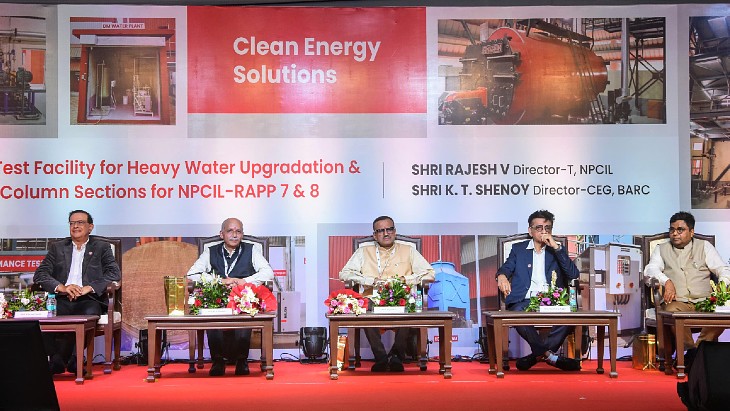India's Department of Atomic Energy said that it was a "milestone achievement" as critical testing infrastructure for heavy water distillation components had previously existed only within the Bhabha Atomic Research Centre.
It said the initiative fitted the country’s aims "for greater self-reliance in high-tech, strategic sectors. By designing, manufacturing, and validating nuclear components entirely in-house, India reduces reliance on imported equipment and external test infrastructure. It also helps build domestic capability, confidence, and long-term resilience, empowering Indian firms to contribute meaningfully to national energy security goals".
In its announcement, the department also said: "The dignitaries also flagged off the first validated consignment of eight Distillation Column sections, comprising activated phosphor bronze modules, critical components for Pressurised Heavy Water Reactors. These modules, having undergone rigorous in-house performance testing, are slated for deployment in key nuclear power projects." These were listed as Rajasthan nuclear power plant unit 8, Gorakhpur units 1–4, and Kaiga units 5 and 6.
India currently has 24 operable nuclear energy reactors with a total installed capacity of 8.88 GW, with six units - totalling 4,768 MWe - under construction. The Consultative Committee of India's Ministry of Power in April outlined steps needed to meet the country's target of a more than 10-fold increase in its nuclear energy capacity to 100 GW by 2047. These measures included moves to enable broader participation by the private and state sectors.





_53504.jpg)

_13505.jpg)
_87975.jpg)






